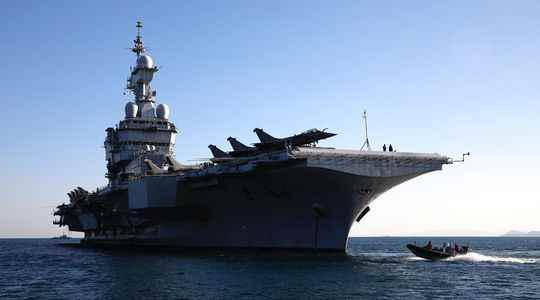Special rapporteur for the defense budget in the Assembly, François Cornut-Gentille is worried: for years France has been avoiding a debate on our weaknesses and our methods of military operation. According to him, we have settled into a routine, which exposes us “to preparing for yesterday’s war”. The deputy Les Républicains (LR) of Haute-Marne warns: “With each generation, we get bigger and more sophisticated. But we never question the operational contribution in an environment that has evolved considerably.”
L’Express: In the event of a major war where we would be co-belligerent, is French military power ready?
Francois Cornut-Gentille: Obviously, there is room for doubt. When the current Chief of Defense Staff asserts that our forces could not sustain a high-intensity conflict over time, this should be understood as an admission that our forces are unsuited to a war on the scale of the one we are witnessing in Ukraine. This concerns both equipment and manpower. We certainly have an army designed for asymmetrical wars where the adversary does not have the same technological level as us. This is true in the Sahel but it would not be in Europe.
Thus, the conflict in Ukraine, like that in Nagorno-Karabakh, has confirmed the essential role of artillery and drones. However, our armies are under-equipped for one and have totally missed the development of the others. The conclusion is unanimous; yet, so far, it has elicited no reaction.
Other subjects of concern are latent: our space autonomy, strategic and tactical air transport, notoriously dependent on the support of foreign powers. Finally, I would add intelligence, which has shown its weaknesses both in the Sahel and in Eastern Europe.
What do some people mean when they speak of an obsession with the aircraft carrier?
Investments in the field of defense have for forty years been in very high-tech equipment. With each generation, we get bigger and more sophisticated. But we never question the operational contribution in an environment that has nevertheless evolved considerably. Everyone knows that routine does not help prepare for the future. It exposes us to preparing for yesterday’s war.
We pride ourselves on having a carrier group that operates intermittently in the Mediterranean. The launch of the successor program to the Charles de Gaulle was decided without any debate. However, rather than immediately freezing billions of euros and maritime capabilities over several decades, it would have been preferable to question the real contribution of a naval air group in the conflicts of tomorrow. I fear that this debate will unfortunately never take place. However, the recent destruction of the flagship of the Russian fleet in the Black Sea should invite us to do so…
Such is the paradox of our military tool: even with competent personnel and sophisticated equipment, it is possible to be out of step with a constantly changing reality. It’s an old story that repeats itself. The Maginot Line was itself an impressive monument and equipped with the most advanced technologies of the time.
What would be the terms of a debate on our defense that you are calling for?
The first condition is the acceptance of the principle of the debate. But, for several years, the Ministry of the Armed Forces has refused any idea of questioning our weaknesses and our modes of operation. Thus, it is today impossible to know the availability of our planes, ships and other land vehicles. Ten years ago, this was not the case. Of course, the truth can sometimes hurt; but it alone will allow us to progress.
Who can lead this debate?
It is of course very difficult for the military or industrialists to question the tools they use or produce. In addition, the executive’s approach, which is too often narrowly budgetary, does not allow this work, being mainly guided by the search for balance between manufacturers and the various armies.
Under these conditions, only Parliament can carry out this task because it has the distance and the independence necessary to accomplish it. This presupposes that parliamentarians engage in real work and are not content to pass on the various demands of the defense industries and the armies. Such would be the contribution of a Parliament worthy of the name.
Around what questions?
The topics are many. I have already touched on a few. But we must also mention nuclear deterrence. Vladimir Putin used deterrence to attack a country without nuclear weapons and protect himself from a major response. This worrying precedent should lead us to reflect on our doctrine of deterrence and non-proliferation, because in the future others may be tempted to follow its path.
What role does the European Union play in these defense issues?
A considerable role in the speeches of French leaders but, in practice, an extremely modest role. Undoubtedly the Europe of defense is an interesting idea, nevertheless, at this stage it is still essentially a virtual reality. Thus, the European Defense Fund that is regularly touted is endowed with 7.9 billion euros over six years. If this is, in absolute value, a significant figure, in terms of defense and on the scale of Europe, it can be considered as quite marginal.
Similarly, Franco-German industrial cooperation is often presented as a pillar of the future defense Europe, but its implementation is also very modest. Both on the tank and the plane of the future (Scaf), the difficulties accumulate to the point that it is not certain that these projects can succeed.
The truth of European defense that French politicians do not want to recognize is NATO. From this point of view, the only question that arises is whether we give ourselves the means to weigh within it. Unfortunately, no one is concerned about it: this subject does not enter into the elements of language that have been harped on for thirty years.
